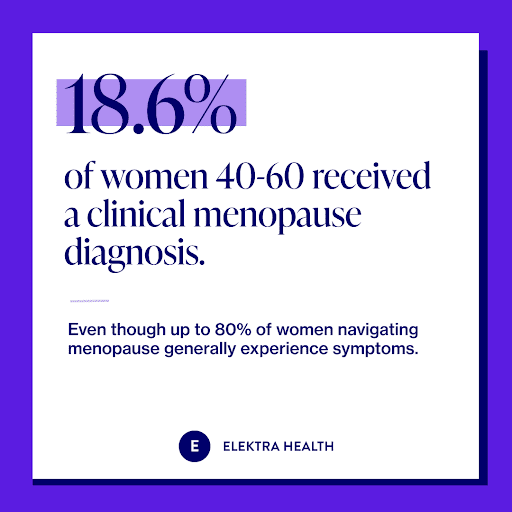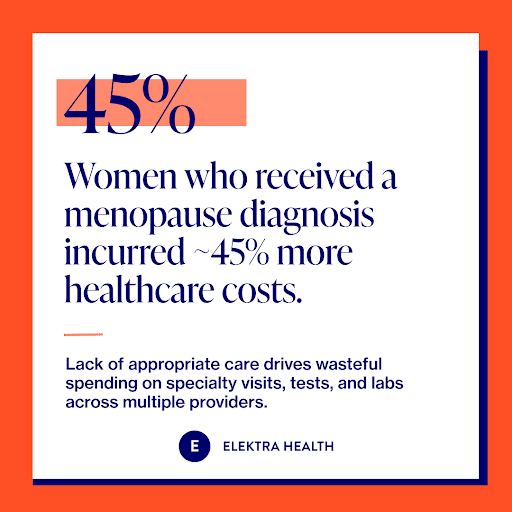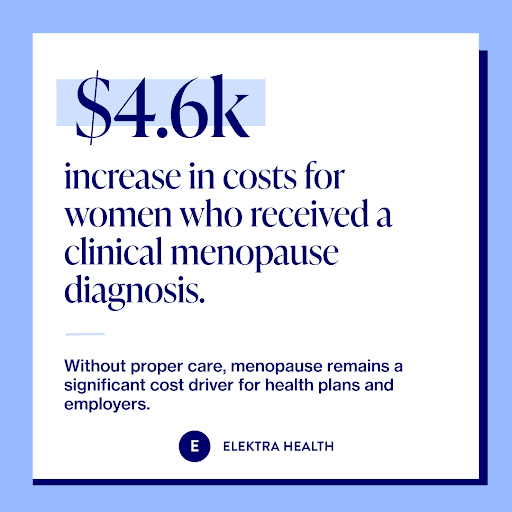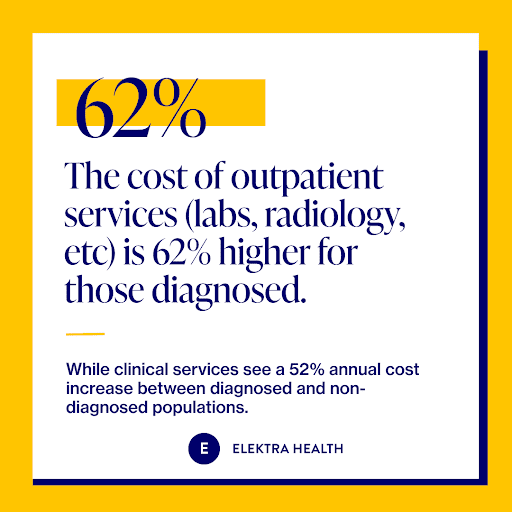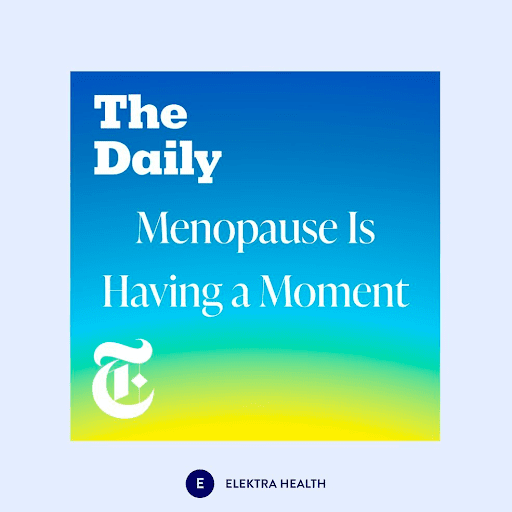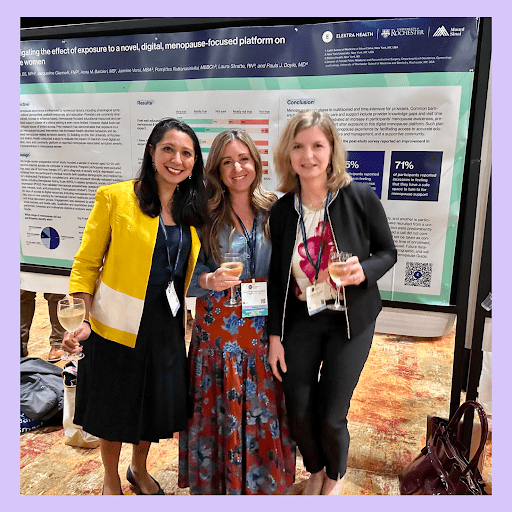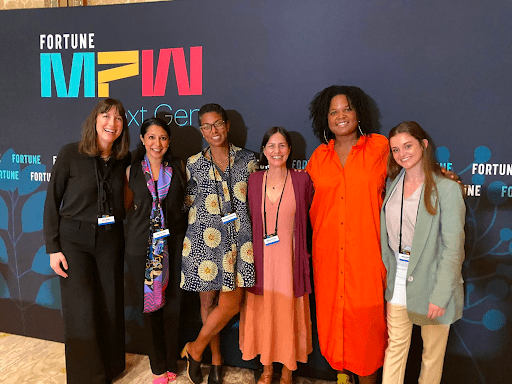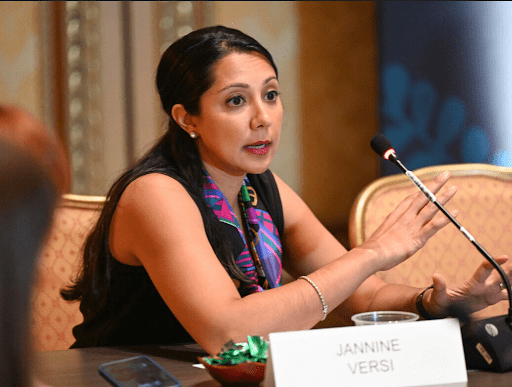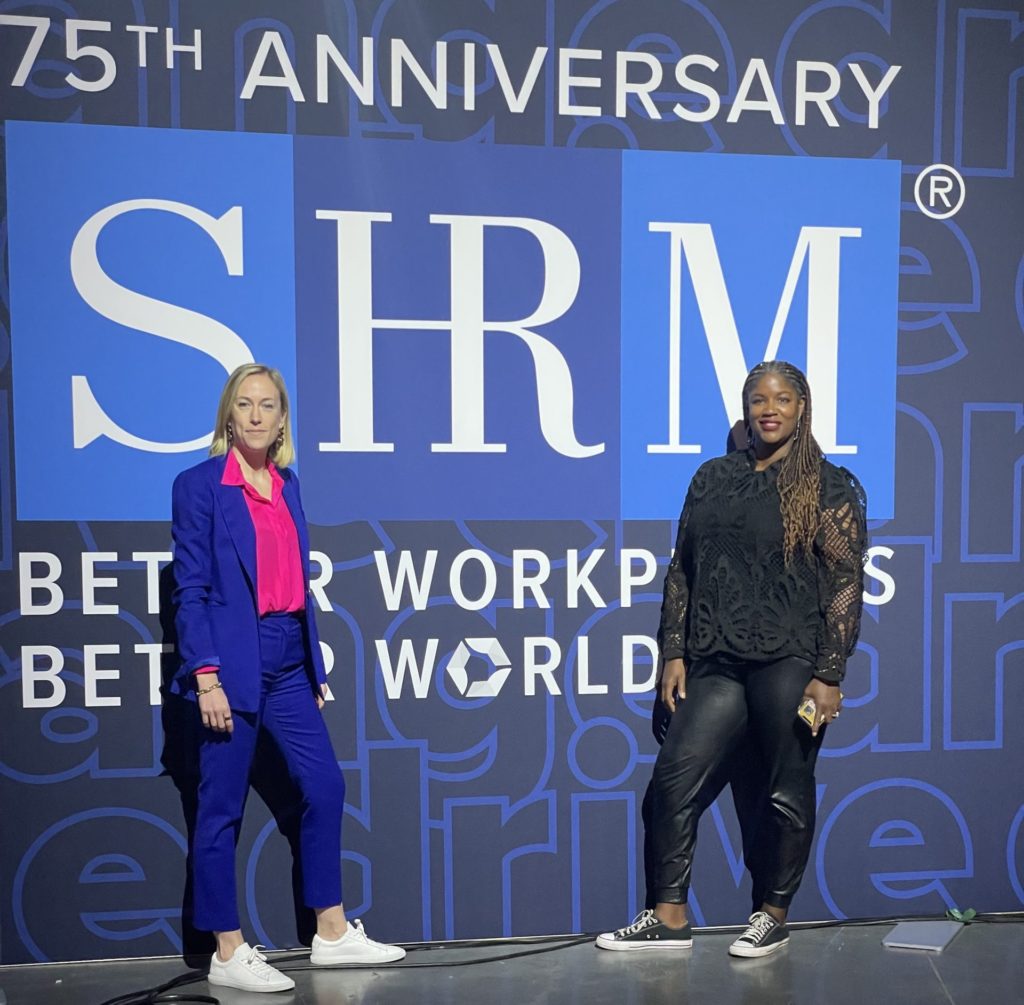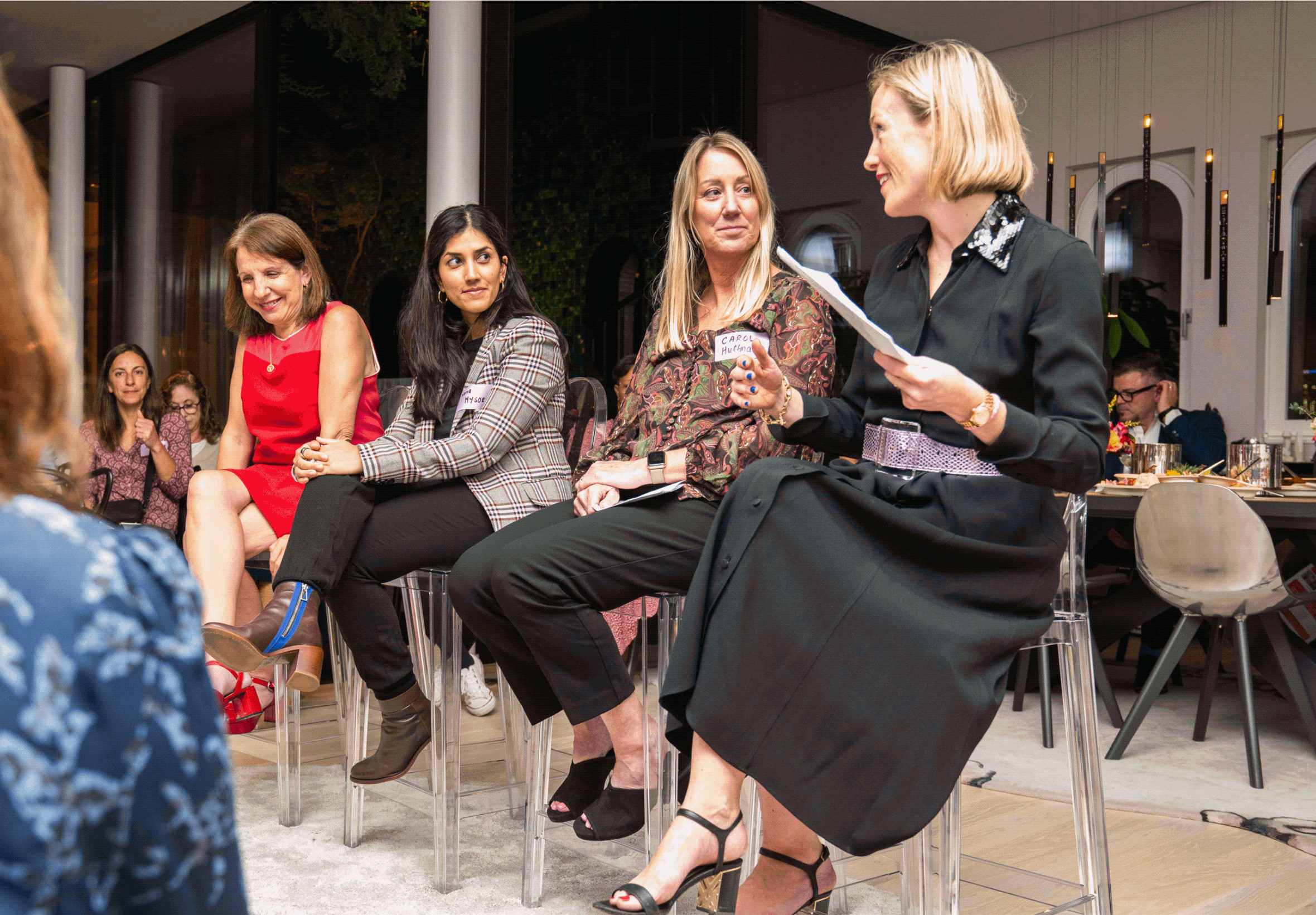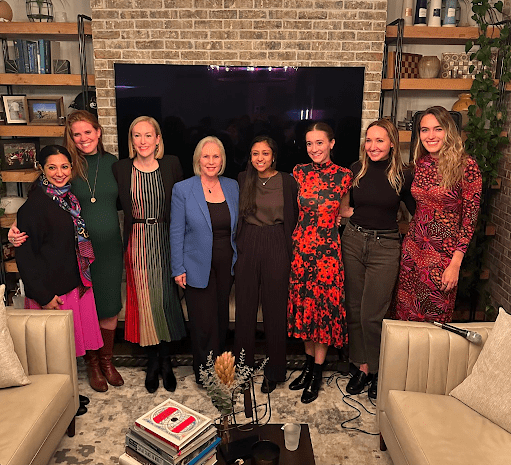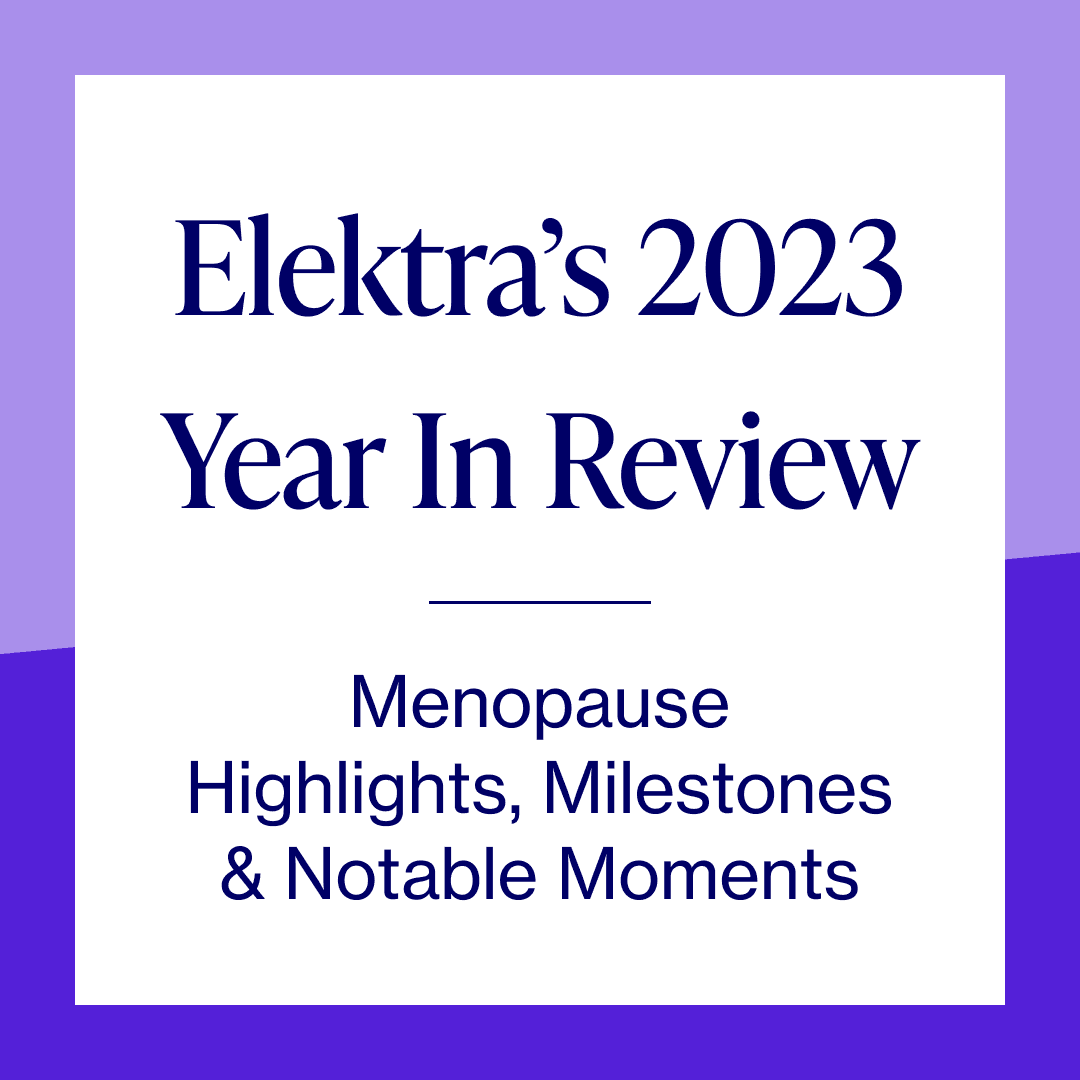
Published on Dec 11, 2023
Last modified on Dec 12, 2023
Elektra’s 2023 Year In Review: 10 Highlights, Milestones & Notable Moments
5 min read
As the year comes to a close, we’re taking time to celebrate all the ways the menopause — and broader women’s health — conversation has evolved over the past 12 months. There’s been reports, conferences, panels, virtual educational events, policy initiatives, and dinners to discuss how we can affect meaningful change for the over 50 million US women currently in the menopause transition.
While there’s still more to be done, BIG strides were made this year and the Elektra team is grateful and proud to have played a part in it.
Here’s to continuing this important work in 2024, because women deserve better.
1. Elektra released an Actuarial Menopause Cost Report confirming that menopause remains overwhelmingly under-diagnosed and under-treated
Our study was the first of its kind in a decade. We hired an independent actuarial firm to investigate the healthcare costs incurred by menopausal women ages 40-60 according to actuarial analysis of claims data. Among the findings:
- Only 19% of women received a clinical menopause diagnosis, even though up to 80% generally experience symptoms.
- The population who received a clinical menopause diagnosis incurred 45% more healthcare costs on average per year.
- The average cost in total healthcare expenses for the diagnosed population was $4,637 higher than non-diagnosed, with a 62% cost increase for outpatient services (labs, radiology, etc) and 52% increase for clinical services.
- For patients diagnosed with menopause, comorbid conditions such as metabolic disorders, hypertension, and joint pain are both more prevalent and more costly: 37% and $2,572, 14% and $4,133, 38% and $3,965, respectively.
2. Elektra Co-Founder & COO Jannine Versi spoke at the inaugural Women’s Health Summit hosted by the New York City Mayor’s Office
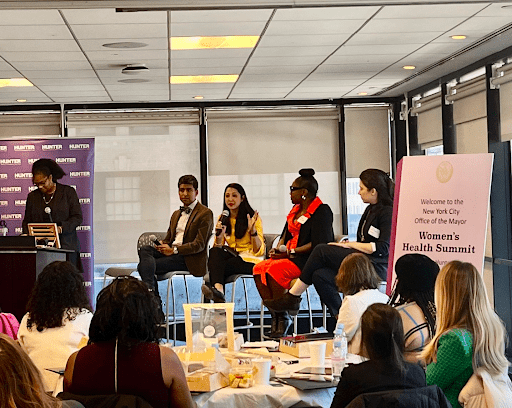
Jannine was joined by changemakers from medicine, local government, nonprofit, academia, and the private sector, including Kimberly Seals Allers (Founder, Irth), Shelly Latte-Naor, MD (Director of Mind Body Medicine & Attending Physician, Memorial Sloan Kettering Cancer Center), Neel Shah, MD (Chief Medical Officer, Maven Clinic), Ashlee Wisdom, MPH (Founder & CEO, Health In Her Hue), Jennifer Weiss-Wolf (Executive Director at Birnbaum Women’s Leadership Center, NYU Law), Jamie White (Health Science Strategy and Relations Lead, The National Institutes of Health), Sasha Ottey (Executive Director, PCOS Challenge: The National Polycystic Ovary Syndrome Association), Alison Greenberg (Co-Founder & CEO, Ruth Health), Priyanka Jain (Co-Founder & CEO, Evvy), Pita Navarro (Co-Founder & Chief Science Officer, Evvy), Ann Kurth, PhD (President, The New York Academy of Medicine), and more.
“Despite many intertwined obstacles ranging from systemic oppression to poor reimbursement to entrenched stigma … this group & its allies are making change happen, identifying gaps, brainstorming solutions, and getting stakeholders together to look each other in the eyes,” said Jannine. “I hope every city and state and indeed, the country, follows in this example.”
3. Elektra hosted Employee Resource Groups (ERGs) with Bluebeam, Babson College, and other employers dedicated to advancing the conversation around menopause in the workplace
During these educational events, our Founding Nurse Practitioner Jackie Giannelli covered the science and symptoms of menopause and how it affects women in the workplace, provided insight into evidence-based treatment, tips, and tools, and fostered a safe space for discussion and Q&A.
“I found the session to be extremely informative and valuable. It was great to have a safe space to ask questions and have an open discussion with a clinical expert in the field of menopause.” — Babson College employee
“I felt so safe and secure learning more about what has been known as a ‘taboo’ topic, as well as a sense of belonging in this session with other women who have questions and concerns just like me. This was a game changer.” — Bluebeam employee
Learn more about how you can bring menopause education and support to your workplace.
4. Menopause made headlines in a BIG way
The New York Times Magazine’s cover story about menopause immediately went viral and is one of the Times’ most-forwarded articles. Menopause was featured on The Daily — with a published comment from Elektra’s very own Jannie Versi! — and in Bloomberg, BCG, CNN, Yahoo!, Deloitte, and more.
We LOVE seeing menopause in the spotlight and are actively working towards a future where more awareness and education translate into more affordable, evidence-based care and support for all women.
“Women in perimenopause and beyond hold up our society — as parents, daughters, caregivers, workers, leaders, and more,” said Jannine. “Employers, health plans, the NIH, and others are just beginning to recognize the magnitude of this space.”
5. At The Menopause Society’s annual meeting, Elektra presented results from an IRB-approved study in partnership with University of Rochester School of Medicine and Icahn School of Medicine at Mount Sinai
Our study demonstrated an increase in participants’ menopause awareness, preparedness, and sense of support after exposure to our digital menopause platform. This impact is psycho-social in nature – we term it the “menopause mindset” – and we see it as foundational to improvement in clinical outcomes.
Among the findings:
- 71% of participants reported increases in feeling educated about menopause and knowing what to expect
- 75% of participants reported increases in feeling that they have access to menopause experts when they need them
- 92% of respondents reported an improvement in 1 or more of the 3 questions about menopause education/preparedness, access to experts, and having a safe space to turn to for menopause support
6. Jannine Versi spoke about destigmatizing women’s health at Fortune’s Most Powerful Women Next Gen Conference
Jannine was joined by host Alex Mikhail of Fortune and fellow panelists Beatrice Dixon (Co-Founder, CEO & Chief Innovation Officer, The Honey Pot Company), Marlena Fejzo (Board Member & Research Advisor, HER Foundation), Erin Parks, PhD (Co-Founder & COO, Equip), and Amanda P. Williams, MD, MPH (Medical Director, Mahmee).
The topic? Destigmatizing and democratizing female healthcare. The conversation highlighted the resiliency needed to raise awareness and capital while supporting a community that, in many respects, has been left behind.
7. And Elektra CEO Alessandra Henderson spoke alongside Tina Opie, PhD at SHRM, the world’s largest HR convention
Together, they hosted a candid, actionable conversation about how employers can support employees with the menopause and broader women’s health care and support they deserve.
8. First Lady Dr. Jill Biden announced a White House Initiative on women’s health
The Elektra Health team was THRILLED to learn about the launch of the first-ever White House Initiative on Women’s Health Research, an effort led by Jill Biden and the White House Gender Policy Council.
We often quote stats that only 20% of OB/GYNs in the US receive menopause training during their residency. And 70% of women who seek menopause care don’t receive treatment.
Brava to Jill Biden for speaking up and out, for using her voice to shape a future with broader provider education for better health outcomes.
9. Elektra hosted a “Modernizing Women’s Health In The Workplace” salon event
Why? Because it’s 2023. We’ve modernized so many other elements of the work experience — no more typewriters or rolodexes or floppy disks or landlines! And yet, the state of women’s health benefits is woefully stuck in the past. That needs to change.
So we gathered New York’s top leaders, executives, healthcare providers, and founders from Astellas, the Ford Foundation, Mount Sinai, Pfizer, Ernst & Young, Planned Parenthood Federation, EverBody, Eden Health, and more. And we heard from three esteemed speakers: Carol Huffman (VP of Strategic Partnerships, EmblemHealth), Navya Mysore, MD (National Program Medical Director of Sexual & Reproductive Health, One Medical), and Jennifer Weiss-Wolf (Executive Director at Birnbaum Women’s Leadership Center, NYU Law).
The result was powerful. Women (and men) around the room committed to being the catalyst in making menopause care and education accessible to everyone by discussing menopause at work, seeking out menopause-certified providers, and being our most vulnerable selves.
Following the event, we released our 3-step guide to advocating for a more inclusive women’s health environment at your workforce.
READ MORE: Top Takeaways From Our “Modernizing Women’s Health In The Workplace” Salon Event
10. Elektra co-hosted an event with Senator Kirsten Gillibrand for an honest, actionable conversation around innovation in women’s health
The senator reminded us why representation matters — not just for statistics or show, but to ensure that diverse viewpoints and solutions have a seat at the table.
Elektra CEO Alessandra Henderson said it best…”using one’s vote and voice is tremendously important. No matter how big or small your platform is, speaking up and out — and participating in our democratic process — is tremendously powerful. Never underestimate the power that one voice, one person can have on the future of equal representation, and by extension women’s health. If you’re looking to get active in women’s health, consider this your nudge!”
The future of women’s health is bright and we’re excited to carry this energy and momentum into 2024…and beyond!
Interested in being part of the movement to elevate and modernize the conversation around menopause? We’d love to chat. Reach out at [email protected] 💜
